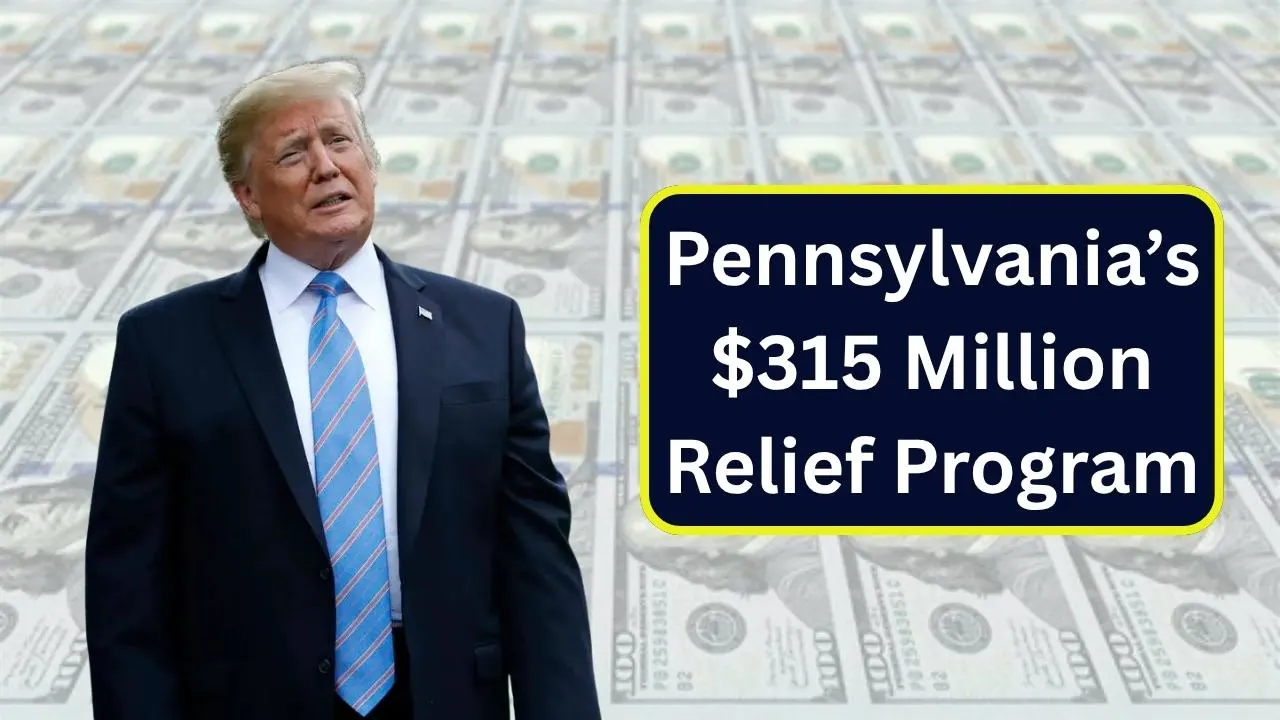In response to rising living costs and persistent inflation, Pennsylvania is providing tax refund checks of up to $1,000 to over 500,000 residents through its expanded Property Tax and Rental Rebate Program (PTRR). This long-standing initiative, initially launched in 1971, has been a financial lifeline for seniors, widows, widowers, and individuals with disabilities. With this year’s expansion, the program aims to offer more relief to a larger group of Pennsylvanians than ever before.
Governor Josh Shapiro’s administration has made it clear that this rebate is a vital step in addressing economic challenges, particularly for the state’s most vulnerable residents. Through the PTRR, Pennsylvania not only helps residents directly but also stimulates the local economy by increasing spending in critical sectors such as groceries and healthcare.
Table of Contents
Key Features of the 2025 Property Tax and Rental Rebate Program
The PTRR provides financial relief to eligible residents by offering rebates to help offset property tax and rent burdens. These rebates are funded through the Pennsylvania Lottery and casino revenue, ensuring the program’s sustainability without putting additional strain on state taxpayers.
Here are the key features of the 2025 PTRR:
| Feature | Details |
|---|---|
| Eligibility | Seniors (65+), Widows/Widowers (50+), Disabled (18+) |
| Income Limit | $45,000 annual household income |
| Maximum Refund | Up to $1,000 for eligible individuals |
| Supplemental Bonus | An additional $190–$500 kicker for certain homeowners |
| Funding Source | Pennsylvania Lottery and casino revenues |
| Application Process | Online, by mail, or in person at one of 300 assistance centers |
| Documentation Required | Proof of age, income, and housing payments |
Expanded Eligibility and Refund Amounts
The PTRR program has been significantly expanded to include more residents than ever before. The income limit has been increased from $35,000 to $45,000 per year, and the maximum rebate has increased from $650 to $1,000. This means that more individuals and families can now qualify for assistance.
For 2025 (the 2024 tax year), rebate amounts are determined by annual income and fall into the following categories:
| Annual Income Range | Maximum Refund |
|---|---|
| $0 – $8,270 | $1,000 |
| $8,271 – $15,510 | $770 |
| $15,511 – $18,610 | $460 |
| $18,611 – $45,000 | $380 |
In addition, a supplemental bonus, known as the “kicker”, is available for homeowners earning under $31,000 whose property taxes exceed 15% of their income, or for those living in high-cost areas like Philadelphia, Pittsburgh, and Scranton. This bonus can add between $190 and $500 to the rebate amount, bringing the total for some households to $1,500.
Who Qualifies for the 2025 Rebate?
Eligibility for the PTRR rebate is based on several factors, including age, income, and housing situation. Below is a breakdown of who qualifies:
| Eligibility Criteria | Details |
|---|---|
| Age | 65+ (for seniors), 50+ (widows/widowers), 18+ (disabled) |
| Income Limit | Household income must be $45,000 or less |
| Housing Requirements | Proof of property taxes (homeowners) or signed rent certificate (renters) |
| Special Considerations | Excludes more than half of Social Security income from the calculation |
| Exclusions | Households receiving public aid may not qualify |
Applicants must provide proof of age, income, and housing payments (such as property tax receipts or a landlord-signed rent certificate). Those in assisted living may also qualify as long as they meet the income threshold.
“This program is designed to ensure that low-income Pennsylvanians, especially seniors and individuals with disabilities, can continue to make ends meet despite rising living costs,” says Jane Smith, a policy expert at the Pennsylvania Department of Revenue.
How to Apply for the 2025 PTRR Refund?
To apply for the PTRR rebate, eligible applicants must provide the following documents:
- Proof of age: Driver’s license, Medicare card, or birth certificate
- Proof of income: W-2, tax return, pension documents
- Proof of housing payments: Property tax receipts or landlord-signed rent certificate
Applications can be submitted via myPATH.pa.gov (the state’s online portal), by mail, or in person at one of the 300 free assistance centers throughout Pennsylvania.
“We recommend double-checking your documentation before submission. Incorrect or incomplete paperwork is the main reason for rejections,” adds Michael Lang, Senior Administrator at the Department of Taxation and Revenue.
Why This Matters: Impact on Local Economies
The $315 million injected into Pennsylvania’s economy through the PTRR isn’t just beneficial for individual households—it’s also a boost for local communities. By increasing the purchasing power of low-income residents, the program stimulates groceries, utilities, and healthcare, while reducing food insecurity.
In addition to individual relief, the PTRR serves as a preventive measure against further economic hardship. Governor Shapiro points out, “As the cost of living rises, this rebate ensures that vulnerable populations don’t fall further behind in their ability to meet basic needs.”
FAQs
Q1. How much can I receive from the PTRR in 2025?
Ans. You could receive up to $1,000 depending on your income level, with an additional bonus kicker for homeowners in high-cost areas.
Q2. Who qualifies for the PTRR?
Ans. Seniors aged 65+, widows/widowers aged 50+, and individuals with disabilities aged 18+ who meet the income requirement of $45,000 or less.
Q3. How do I apply for the PTRR rebate?
Ans. Applications can be submitted online, by mail, or in person at one of the 300 assistance centers in Pennsylvania.
Q4. What are the income limits for the PTRR?
Ans. To qualify for the rebate, your household income must be $45,000 or less.
Q5. Will the PTRR continue in the future?
Ans. Yes, it is an ongoing program, but the eligibility requirements and rebate amounts may change from year to year.

